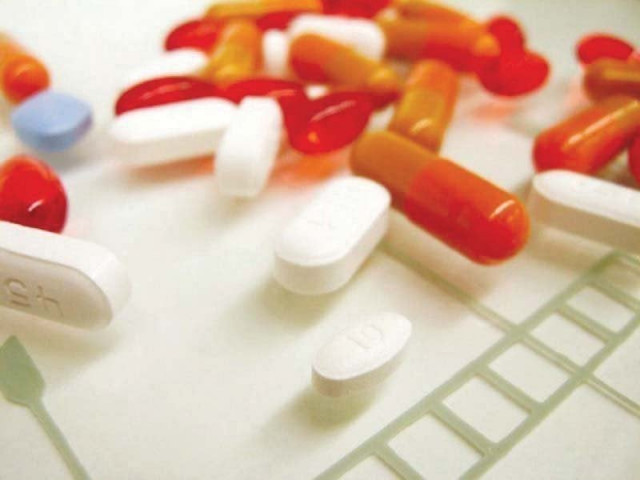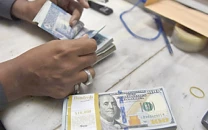Deregulation boosts pharma profits by 210% YoY
Sector witnesses Rs13.5b, a 3.1 times growth as price caps ease, sales volumes rise

Owing to deregulated prices, Pakistan's pharmaceutical sector witnessed a remarkable surge in profitability, posting a 210% year-on-year (YoY) increase to Rs13.5 billion in the calendar year 2024, according to data compiled by Arif Habib Limited (AHL).
The sector's net revenue increased by 21.1% YoY, reaching Rs196.8 billion, with leading contributions from AGP (+33.8% YoY), Glaxo (+23.2% YoY), and Abbott (+22.9% YoY), according to data gathered by AHL.
"This 210% (or 3.1 times) YoY growth was driven by higher sales volumes and price adjustments following deregulation of drug prices," AHL analyst Menka Kirpalani told The Express Tribune.
Gross profits also saw a significant increase of 64.9% YoY, reaching Rs68.6 billion, supported by better pricing strategies, currency stability, and lower active pharmaceutical ingredient (API) costs. Companies such as Glaxo (+339.2% YoY), Abbott (+67% YoY), and AGP (+44.4% YoY) played a key role in this expansion. The overall gross margin for the sector improved to 34.9%, with Hinoon (51.4%) and AGP (47.8%) leading the way. Net margins also increased to 6.9%, reflecting improved operational efficiency.
The demand-side impact was negligible. Demand for pharmaceuticals and medicines naturally increases as the population grows, said Kirpalani. However, the main issue for the pharmaceutical sector was that their prices were regulated. Essential medicines were subject to a price cap linked to 70% of the Consumer Price Index (CPI) and non-essential medicines to 100% of CPI, meaning companies could only increase prices up to that limit.
In February 2024, the government deregulated prices for the non-essential segment, allowing companies to adjust prices based on their own cost structures and profitability needs. As a result, gross margins improved, and volumes also increased.
Previously, some products had stalled sales due to low marginsfor instance, Panadol was temporarily unavailable because companies were unable to maintain profitability under regulated pricing. With deregulation, both margins and sales have now increased, benefiting the industry.
Despite the positive performance, finance costs grew by 4.7% YoY to Rs4.7 billion, mainly due to higher interest rates. Additionally, other income dropped by 44.4% YoY, impacting companies like Glaxo (-50.8% YoY) and Abbott (-51.6% YoY).
Among individual companies, Glaxo reported a profit of Rs6.5 billion (+12.2 times YoY) with an EPS of Rs20.52, while Abbott recorded Rs5.2 billion (+20 times YoY) with an EPS of Rs53.46. Hinoon posted Rs3.2 billion in profit (+35.4% YoY) with an EPS of Rs61.41, and AGP reported Rs2.08 billion (+75.1% YoY) with an EPS of Rs7.44. However, Searl suffered a loss of Rs3.6 billion, facing operational challenges.
Several companies, including Glaxo, Abbott, and Hinoon, announced dividends of Rs10, Rs10, and Rs40 per share, respectively, rewarding shareholders for the strong financial results.















1724319076-0/Untitled-design-(5)1724319076-0-208x130.webp)






COMMENTS
Comments are moderated and generally will be posted if they are on-topic and not abusive.
For more information, please see our Comments FAQ